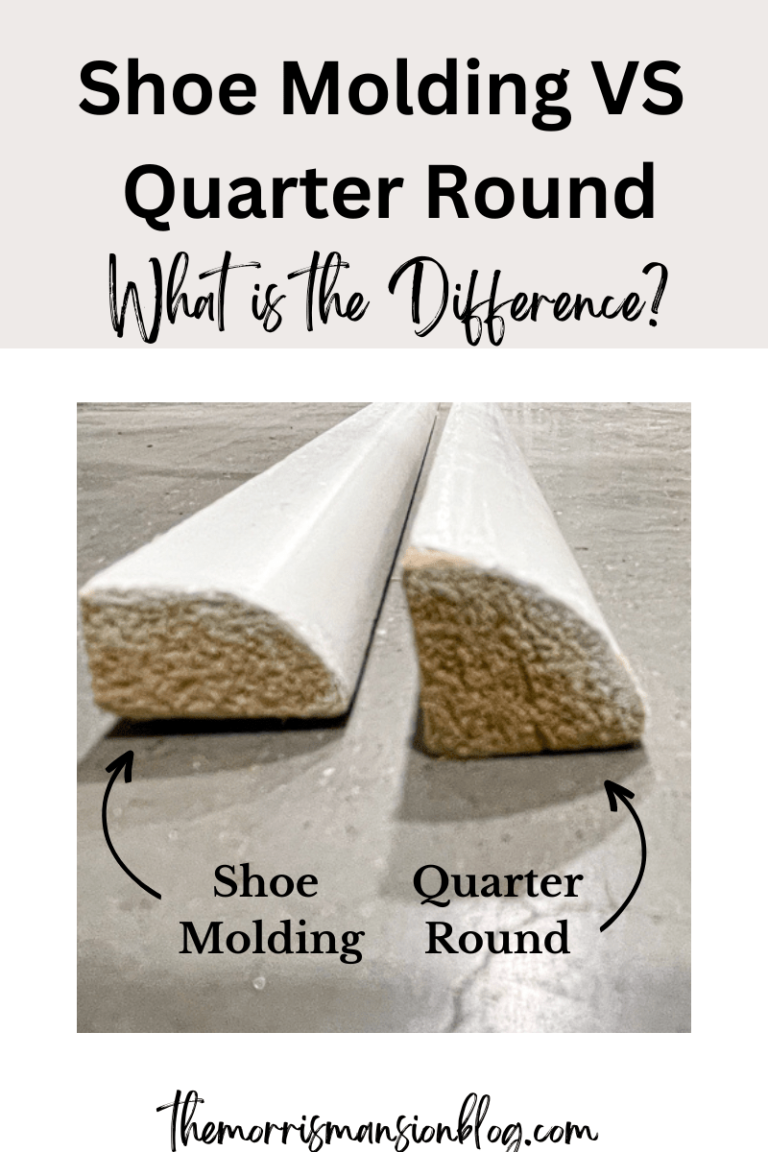How Much Does a Shoe Weight?
Shoe weight depends on factors such as its size, design, construction, and the materials used for its upper, sole, and other components. Generally, athletic shoes tend to be lighter, while certain types of boots and work shoes can be heavier due to added support features or protective elements.
A shoe typically weights around 0.5 to 2 pounds. Shoes come in various styles, materials, and types, which can affect their weight.
The weight of a shoe is an important consideration for comfort, performance, and overall functionality. Whether you are an athlete, hiker, or simply someone who values comfort, understanding the weight of different types of shoes can help you make informed choices when selecting footwear for your specific needs.
Lightweight Shoes: The Featherweights Of Footwear
Lightweight shoes, the featherweights of footwear, redefine comfort and agility. These sleek wonders blend innovation with style, offering a weightless experience for every step. Crafted from cutting-edge materials like mesh, knits, and specialized foams, they champion breathability and flexibility.
Whether for running, daily wear, or sports, their minimalistic design delivers freedom and ease, reducing fatigue and enhancing performance. Embracing modern technology, these shoes prioritize comfort without compromising support. From bustling streets to dynamic fields, lightweight shoes stand as the epitome of featherlight comfort and effortless style in every stride.
Heavyweight Shoes: The Heavyweights Of Footwear
When it comes to choosing the perfect pair of shoes, weight is an important factor to consider. The weight of a shoe not only affects how it feels on your feet, but it can also impact your overall comfort and stability. In this section, we’ll explore the reasons for heavier shoe weights, the types of shoes that tend to be heavier, and how shoe weight can affect your comfort and stability.
Reasons For Heavier Shoe Weight
There are several reasons why some shoes weigh more than others. One of the main factors is the materials used in their construction. Shoes that are made from high-quality and durable materials such as leather or thick rubber soles tend to be heavier. These materials provide added protection, support, and durability, but they also contribute to the overall weight of the shoe.
Another reason for heavier shoe weights is the presence of additional features. Some shoes are designed with extra cushioning, arch support, or stability technology, which can increase their weight. These features are often favored by athletes or individuals with specific foot conditions who require enhanced support and comfort.
Types Of Shoes That Tend To Be Heavier
While the weight of a shoe can vary across different styles and brands, certain types of shoes tend to be inherently heavier. Boots, for instance, are generally heavier than other footwear options due to their construction and thicker soles. This added weight provides better protection and insulation, making boots a popular choice for outdoor activities and harsh weather conditions.
In addition to boots, hiking shoes, and work shoes are also known for their heavier weight. These shoes are designed to withstand rugged terrains and provide maximum durability and stability. The heavier weight of these shoes ensures that they can withstand the demands of outdoor activities and offer excellent foot and ankle support.
How Shoe Weight Affects Comfort And Stability
The weight of a shoe can have a significant impact on both comfort and stability. Heavy shoes may be more comfortable for individuals who need extra support or cushioning, as the added weight can help absorb shock and reduce strain on the feet and joints. These shoes often provide a more substantial and secure feel, especially for those with foot issues or who spend long hours on their feet.
However, it’s essential to note that heavy shoes may not be suitable for everyone. For individuals with mobility or balance problems, wearing heavy shoes can hinder their stability and increase the risk of falls or injuries. Furthermore, the additional weight can lead to fatigue in the legs and feet over extended periods of wear.
Advantages And Disadvantages Of Wearing Heavy Shoes
Wearing heavy shoes comes with its advantages and disadvantages. The primary advantage of heavy shoes is the increased stability and support they provide. They can give you a confident and grounded feel, making them an excellent choice for activities that require ample foot protection and stability.
However, heavy shoes can also be cumbersome and restrictive, especially for activities that involve a lot of movement or require agility. The additional weight can slow you down and make it more challenging to move swiftly. Additionally, heavy shoes can contribute to foot fatigue and discomfort, particularly if you will be on your feet for long periods.
In Conclusion
The weight of a shoe plays a crucial role in determining its comfort, stability, and suitability for various activities. By understanding the reasons for heavier shoe weights, the types of shoes that tend to be heavier, and the effects of shoe weight on comfort and stability, you can make a more informed decision when selecting your next pair of footwear.
Unusual Shoe Weights: Surprising Factors That Affect Weight
html
When it comes to choosing the perfect shoes, weight is a crucial factor to consider. The weight of a shoe can significantly impact comfort and performance. While most of us might assume that all shoes weigh roughly the same, there are several surprising factors that affect shoe weight. Understanding these factors can help you make informed decisions when selecting your next pair of shoes.
Material Choices And Their Impact On Shoe Weight
One of the primary factors that determine the weight of a shoe is the materials used in its construction. Different materials have distinct properties that directly influence the overall weight of the shoe. Here are a few examples:
| Material | Weight Impact |
|---|---|
| Leather | Leather is a durable and high-quality material, but it tends to be heavier compared to other options. |
| Mesh or Knit | Mesh or knit materials are lightweight and breathable, making them ideal for running or athletic shoes. |
| Synthetic Materials | Many shoes incorporate synthetic materials that mimic the qualities of natural materials but with reduced weight. |
Influence Of Shoe Size On Weight
Believe it or not, the size of your shoe can have a surprising impact on its weight. Generally, larger-sized shoes tend to be slightly heavier than smaller ones of the same model. This weight difference can be attributed to the additional materials required to maintain the shoe’s structure and provide adequate support for larger feet.
Unexpected Factors That Can Add Weight To Shoes
Besides materials and shoe size, there are various unexpected factors that can contribute to the weight of a shoe. Some of these factors include:
- Additional cushioning or padding for enhanced comfort and shock absorption.
- Reinforced toe caps for protection and durability.
- Supportive arch inserts or shanks for improved stability.
- Extra features such as waterproofing or slip-resistant soles.
Unique Shoe Designs That Prioritize Weight Reduction
In the quest for lighter shoes, designers are continually innovating and implementing unique designs to reduce weight without compromising performance. Some popular techniques include:
- Using a minimalist or barefoot design, the shoe only provides essential protection and allows for a more natural foot movement.
- Incorporating lightweight materials like carbon fiber or foam in the midsole to enhance cushioning while minimizing weight.
- Utilizing advanced manufacturing techniques to create seamless and lightweight uppers.
Consider these factors the next time you’re shopping for shoes. By understanding the unusual and surprising factors that affect shoe weight, you can find the perfect balance between comfort, performance, and weight.
Weight Comparison: Different Shoe Types Unveiled
When it comes to assessing the weight of shoes, understanding the variations between different shoe types is essential. Whether you’re a runner, a professional, an adventurer, or just looking for comfortable everyday footwear, the weight of the shoe can make a significant difference.
In this article, we delve into the weight comparisons of popular shoe types, including running shoes, dress shoes, hiking boots, and sneakers. So, let’s explore how much these shoes typically weigh and what factors contribute to their weight.
Running Shoes: How Much Do They Typically Weigh?
For runners, shoe weight is a crucial factor that can impact performance and minimize fatigue. Generally, running shoes are designed to be lightweight, promoting agility and speed on the track or road. The weight of running shoes can vary depending on several factors, including the brand, type of cushioning, upper material, and intended use.
Mid-range running shoes typically weigh between 7 to 10 ounces (198 to 283 grams). However, it’s important to note that lighter options can weigh as little as 5 ounces (142 grams), while heavier shoes designed for long-distance running can weigh up to 12 ounces (340 grams) or more.
Dress Shoes: Surprising Weight Variations Across Styles
When it comes to dress shoes, weight variations can be quite surprising. The weight of dress shoes depends on the construction, materials used, and style. Generally, dress shoes tend to be lighter compared to athletic shoes. Classic oxford or brogue-style dress shoes, commonly made from leather, are relatively lightweight, ranging from 10 to 14 ounces (283 to 397 grams).
On the other hand, dress shoes with additional features like thick soles, extra cushioning, or built-in support can weigh slightly more. It’s worth noting that high-end luxury dress shoes made with exotic materials might be even lighter than the average weight range due to the usage of specialized lightweight materials.
Hiking Boots: Factors That Contribute To Their Weight
Hiking boots are designed to provide stability and protection when traversing challenging terrains. The weight of hiking boots can vary significantly due to several contributing factors. One of the primary factors is the construction and materials used. Hiking boots with leather uppers and rugged outsoles tend to be heavier, ranging from 1.5 to 3 pounds (680 to 1360 grams).
On the other hand, lightweight hiking boots made from synthetic materials or a combination of leather and synthetic materials can weigh around 1 to 2 pounds (453 to 907 grams). Additionally, the boot’s intended purpose also plays a role, with backpacking boots typically being heavier than day hiking boots due to the need for extra durability and support.
Sneakers: Light Vs. Heavy Options In The Market
When it comes to sneakers, the available options cater to a wide range of preferences. Sneakers can vary significantly in weight to meet different needs and activities. Lightweight sneakers, often referred to as minimalist or barefoot shoes, are designed to provide a natural and lightweight feel, weighing as low as 5 to 7 ounces (142 to 198 grams).
However, it’s important to consider that lightweight sneakers might offer less cushioning and support compared to their heavier counterparts. On the other end of the spectrum, sneakers intended for specific sports or activities, such as basketball or weightlifting, can weigh over 15 ounces (425 grams) or even more due to additional features and materials required for enhanced stability and performance.
In conclusion, the weight of shoes varies across different types, and it’s crucial to choose a shoe that aligns with your specific needs and preferences. Whether you’re aiming for speed, comfort, or durability, understanding the weight variations in running shoes, dress shoes, hiking boots, and sneakers will help you make an informed decision. So, consider the factors mentioned above and find the perfect pair that suits both your style and requirements!
Tips For Choosing The Right Weight For Your Shoes
Assessing Your Specific Needs And Activities
When it comes to choosing the right weight for your shoes, it’s important to assess your specific needs and activities. Every person has different requirements based on their lifestyle and the activities they engage in. Are you an avid runner, a fitness enthusiast, or someone who spends long hours on their feet? Understanding your unique requirements is crucial in finding the perfect shoe weight.
Assessing your needs involves considering factors such as your body weight, foot structure, and fitness goals. For example, if you’re an experienced runner looking to improve your performance, opting for lightweight shoes can provide that extra edge. On the other hand, if you have a naturally high arch or suffer from foot conditions like plantar fasciitis, you may need more support and stability, which could mean choosing slightly heavier shoes.
Balance Between Weight And Support
It’s important to strike a balance between weight and support when selecting the right shoe weight. While lightweight shoes offer increased agility and speed, they may sacrifice support and cushioning. On the contrary, heavier shoes often provide better shock absorption and stability, but at the expense of maneuverability.
Finding the right balance ensures that you have the necessary support and protection without compromising your performance or comfort. One way to achieve this balance is to consider shoes with midsole cushions or support technologies that enhance shock absorption and protect your feet during high-impact activities.
Additionally, optimizing the shoe’s weight distribution can also contribute to a more balanced and stable experience. Keep in mind that striking this equilibrium is vital for preventing injuries and enhancing overall foot and ankle health during various activities.
Considerations For People With Foot Conditions
For individuals with foot conditions, the choice of shoe weight becomes even more critical. Conditions like flat feet, plantar fasciitis, or bunions require special attention to minimize discomfort and prevent exacerbation of symptoms.
In such cases, opting for shoes that offer excellent arch support and shock absorption is crucial. These shoes should have a perfect blend of cushioning and stability to reduce strain on the affected areas.
Lightweight shoes may not provide sufficient support, leading to increased pain or discomfort. Therefore, focusing on shoes that prioritize support and stability can significantly alleviate symptoms and promote proper foot alignment.
Personal Preferences And The Importance Of Individual Comfort
While assessing specific needs, striking the right balance, and considering foot conditions are essential, personal preferences and individual comfort should not be ignored. Each person has their own unique preferences and comfort requirements when it comes to shoes.
Factors such as shoe width, toe box space, and overall fit play a significant role in determining comfort. Some individuals prefer a snug fit, while others prefer a bit of extra room. It’s important to find a shoe that aligns with your preferences and provides maximum comfort.
Remember, comfort is subjective, and what might work for one person may not work for another. Therefore, it’s crucial to try on different shoe weights and styles, paying close attention to how they feel while walking or engaging in specific activities.
In conclusion, when choosing the right weight for your shoes, it’s important to assess your specific needs, strike a balance between weight and support, consider any foot conditions, and prioritize personal preferences and individual comfort.
By keeping these factors in mind, you can find the perfect shoe weight that not only enhances your performance but also offers the necessary support, protection, and comfort your feet deserve.

Credit: www.outdoorgearlab.com
Conclusion
Understanding the weight of shoes is vital for various reasons, from packing for travel to determining shipping costs. By delving into the factors that influence shoe weight, we have gained valuable insights into this often-overlooked aspect. Whether you’re an athlete, traveler, or just curious, knowing how much shoes weigh can help you make informed decisions.
So, the next time you pick up a pair of shoes, consider their weight and the impact it can have on your daily activities.







